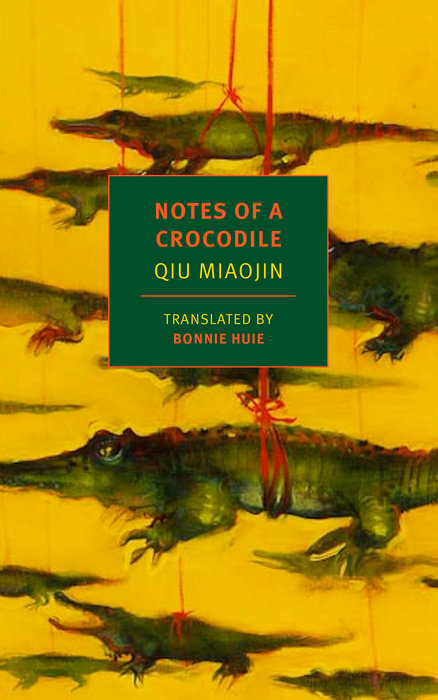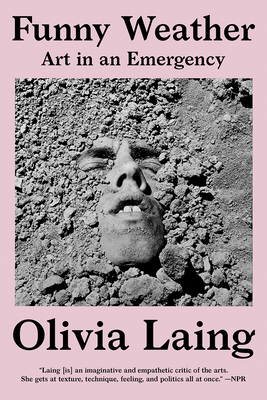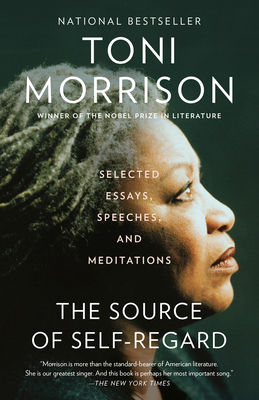While I have tried to curb my book buying over the past few months, there are times when I walk into a bookstore or log onto ThriftBooks.com and find a book I absolutely NEED to have right now on my bookshelf. Whether it’s because I have loved the author’s previous works or because the book is in a genre I have been wanting to read more of, sometimes bookish retail therapy is exactly what the doctor ordered. Here are nine books I absolutely had to add to my shelf right away.

My Book Haul: 9 Shiny New Additions to My Shelf
One of my reading goals for 2021 was to read a historical fiction novel set in a non-Western location, and I decided to pick up SWIMMING BACK TO TROUT RIVER to fulfill this goal. I greatly enjoyed Patricia Engel’s INFINITE COUNTRY earlier this year, and with lyricism and themes of immigration and a family attempting to reunite, SWIMMING BACK TO TROUT RIVER is the perfect follow-up read.
Split between a small Chinese village and the United States during 1986, Linda Rui Feng’s debut novel focuses on Momo and Cassia, two Chinese parents who move to the United States in the aftermath of the Chinese Cultural Revolution. Newly estranged, the two parents attempt to grapple with the tragedies the Cultural Revolution and immigration brought on, while seeking to bring their ten-year-old daughter, Junie, over from China by her twelfth birthday. However, Junie, who is being raised in the Chinese countryside by her grandparents, is determined to stay put, putting Momo’s plans for a family reunion in jeopardy.
A lyrical novel set against the backdrop of China’s Cultural Revolution that follows a father’s quest to reunite his family before his precocious daughter’s momentous birthday, which Garth Greenwell calls “one of the most beautiful debuts I’ve read in years.”
How many times in life can we start over without losing ourselves?
In the summer of 1986 in a small Chinese village, ten-year-old Junie receives a momentous letter from her parents, who had left for America years ago: her father promises to return home and collect her by her twelfth birthday. But Junie’s growing determination to stay put in the idyllic countryside with her beloved grandparents threatens to derail her family’s shared future.
What Junie doesn’t know is that her parents, Momo and Cassia, are newly estranged from one another in their adopted country, each holding close private tragedies and histories from the tumultuous years of their youth during China’s Cultural Revolution. While Momo grapples anew with his deferred musical ambitions and dreams for Junie’s future in America, Cassia finally begins to wrestle with a shocking act of brutality from years ago. In order for Momo to fulfill his promise, he must make one last desperate attempt to reunite all three members of the family before Junie’s birthday—even if it means bringing painful family secrets to light.
“A beautifully written, poignant exploration of family, art, culture, immigration, and most of all, love,” (Jean Kwok, New York Times bestselling author of Searching for Sylvie Lee) Swimming Back to Trout River weaves together the stories of Junie, Momo, Cassia, and Dawn—a talented violinist from Momo’s past—while depicting their heartbreak and resilience, tenderly revealing the hope, compromises, and abiding ingenuity that make up the lives of immigrants.
MENTIONED IN:
I initially picked up REVIVAL SEASON due to the book’s stunning cover and the description of its plot, which promised to be thick with the discovery of long-held family secrets and their ramifications. I am even more excited to have this book in my possession now, as I have found myself to be gravitating towards Southern fiction lately. As I read PEW by Catherine Lacey and SING, UNBURIED, SING by Jesmyn Ward, I have been craving more books set in the American South, and REVIVAL SEASON is high up on my to-read list.
Monica West’s debut novel centers fifteen-year-old Miriam Horton and her family as they trek across the South during revival season, a time where Miriam’s preacher father holds massive healing services for those desperate to be cured of their ailments. However, when Miriam discovers shocking truths about her father and herself, her long-held faith is put to the test.
The daughter of one of the South’s most famous Baptist preachers discovers a shocking secret about her father that puts her at odds with both her faith and her family in this “tender and wise” (Ann Patchett, author of Commonwealth) debut novel.
Every summer, fifteen-year-old Miriam Horton and her family pack themselves tight in their old minivan and travel through small southern towns for revival season: the time when Miriam’s father—one of the South’s most famous preachers—holds massive healing services for people desperate to be cured of ailments and disease.This summer, the revival season doesn’t go as planned, and after one service in which Reverend Horton’s healing powers are tested like never before, Miriam witnesses a shocking act of violence that shakes her belief in her father—and in her faith.
When the Hortons return home, Miriam’s confusion only grows as she discovers she might have the power to heal—even though her father and the church have always made it clear that such power is denied to women. Over the course of the next year, Miriam must decide between her faith, her family, and her newfound power that might be able to save others, but, if discovered by her father, could destroy Miriam.
Celebrating both feminism and faith, Revival Season is a story of spiritual awakening and disillusionment in a Southern, black, Evangelical community. Monica West’s transporting coming-of-age novel explores complicated family and what it means to live among the community of the faithful.
Earlier this year, I read Kiese Laymon for the first time, devouring his essay collection HOW TO SLOWLY KILL YOURSELF AND OTHERS IN AMERICA. Upon completing the book, I knew that I was going to have to read everything he ever wrote. HOW TO SLOWLY KILL YOURSELF AND OTHERS IN AMERICA was an absolute literary game changer for me; I had never encountered an author whose command over the English language was so dynamic and lyrical, and all the essays within the book felt personal yet encompassed a wide breadth of topics, from the early days of COVID-19, to Outkast and Ole Miss football.
I was elated to discover that Laymon had not only written essay collections but had also written a novel. LONG DIVISION is a novel only Kiese Laymon could have written, as it features time travel, a book within a book, a memorable cast of characters, and it explores race, memory, and violence in post-Hurricane Katrina Mississippi.
From Kiese Laymon, author of the critically acclaimed memoir Heavy, comes a “funny, astute, searching” (The Wall Street Journal) debut novel about Black teenagers that is a satirical exploration of celebrity, authorship, violence, religion, and coming of age in post-Katrina Mississippi.
Written in a voice that’s alternately humorous, lacerating, and wise, Long Division features two interwoven stories. In the first, it’s 2013: after an on-stage meltdown during a nationally televised quiz contest, fourteen-year-old Citoyen “City” Coldson becomes an overnight YouTube celebrity. The next day, he’s sent to stay with his grandmother in the small coastal community of Melahatchie, where a young girl named Baize Shephard has recently disappeared.
Before leaving, City is given a strange book without an author called Long Division. He learns that one of the book’s main characters is also named City Coldson—but Long Division is set in 1985. This 1985-version of City, along with his friend and love interest, Shalaya Crump, discovers a way to travel into the future, and steals a laptop and cellphone from an orphaned teenage rapper called...Baize Shephard. They ultimately take these items with them all the way back to 1964, to help another time-traveler they meet to protect his family from the Ku Klux Klan.
City’s two stories ultimately converge in the work shed behind his grandmother’s house, where he discovers the key to Baize’s disappearance. Brilliantly “skewering the disingenuous masquerade of institutional racism” (Publishers Weekly), this dreamlike “smart, funny, and sharp” (Jesmyn Ward), novel shows the work that young Black Americans must do, while living under the shadow of a history “that they only gropingly understand and must try to fill in for themselves” (The Wall Street Journal).
MENTIONED IN:
When I was a teenager, I absolutely devoured young adult dystopian novels: THE HUNGER GAMES, DIVERGENT, THE MAZE RUNNER, UGLIES, anything by Neal Shusterman—you name it, I read it. However, as I have grown older, I have unfortunately strayed away from dystopian novels, but I am eager to make a return to the genre with Catherine Hernandez’s CROSSHAIRS.
In CROSSHAIRS, a paramilitary group known as the Boots has installed a fascist regime, creating a social hierarchy that places those at the bottom into work camps. The book follows Kay, the gay son of Filipino and Jamaican immigrants, as he is separated from his lover Evan and eventually goes on the run from the regime. As Kay runs away, he finds himself on the front lines of a movement called the Resistance, which seeks to overthrow the reign of the Boots.
USA TODAY’s 5 Books Not to Miss
Vanity Fair’s Books To Get You Through the Winter
Marie Claire’s 2020 Books to Add To Your Reading List
PopSugar’s 20 Books Everyone Will Be Talking About
Cosmopolitan’s 20 Books to Read this Winter
“A beautiful, unapologetic, and unwatered-down...dystopian [novel] that holds a sobering mirror up to our own world” (Marie Lu, New York Times bestselling author) from the author of the acclaimed novel Scarborough.
In the wake of the escalating global battle for economic and social justice, award-winning author Catherine Hernandez has crafted a dystopian tale of love, friendship, and resistance set in a terrifyingly familiar near-future. Crosshairs births an indelible landscape of memory and uncertainty as Kay, the gay son of Filipino and Jamaican immigrants, is on the run from a fascist regime operated by a paramilitary group known as the Boots. Those who fall at the bottom of the Boots’ social stratification are rendered “Other” and subsequently sent to work camps. They suffer violence that pushes them further into this otherness, although the new regime labels these sweeping acts the “Renovation.”
Kay’s account of these events is a silent letter to his lover, Evan, from whom he is separated when the Renovation’s plans fall rapidly into place. When Kay finds himself on the run again, he lands in the front lines of a civilian-led movement called the Resistance. There, he discovers the answer to his question: “I wonder what could possibly happen in my lifetime that would have me running. What would mean enough to me to fight against it?”
Crosshairs grapples with a matrix of oppressive systems perpetuated by environmental disaster and state-sanctioned violence. Amid the flames of hatred and distrust, marginalized communities rise against the repressive structures that see them as anything but human, and with this, a thrilling message of hope is forged.
Continuing with the dystopian theme, as soon as I read the premise of Agustina Bazterrica’s TENDER IS THE FLESH, I knew that this book was a necessary edition to my shelf. The novel is set in a near-future where animal meat has been made poisonous to humans due to an infectious virus, and eating human meat, also known as “special meat,” has become legal. To make this already chilling premise even more gruesome, the book follows Marcos, an employee at a processing plant who is in the business of human slaughter. My favorite dystopian novels strike the balance between shock value and serious philosophical inquiry, making TENDER IS THE FLESH an absolute must-read.
Working at the local processing plant, Marcos is in the business of slaughtering humans—though no one calls them that anymore.
His wife has left him, his father is sinking into dementia, and Marcos tries not to think too hard about how he makes a living. After all, it happened so quickly. First, it was reported that an infectious virus has made all animal meat poisonous to humans. Then governments initiated the “Transition.” Now, eating human meat—“special meat”—is legal. Marcos tries to stick to numbers, consignments, processing.
Then one day he’s given a gift: a live specimen of the finest quality. Though he’s aware that any form of personal contact is forbidden on pain of death, little by little he starts to treat her like a human being. And soon, he becomes tortured by what has been lost—and what might still be saved.
MENTIONED IN:
What I have discovered about myself as a reader over the past year is that the type of novels I gravitate towards usually contain one of three elements: they’re character driven, they feature imperfect and messy female protagonists, and they analyze race, class, gender, and sexuality through the characters and plot. I picked up QUEENIE by Candice Carty-Williams at Sherman’s Maine Coast Book Shop because the novel contains all three of the aforementioned elements. Carty-Williams’s debut novel features Queenie Jenkins, a twenty-five-year-old Jamaican British woman living in London who is attempting to straddle her dual identities while working at a national newspaper among a largely white workforce. When Queenie and her long-term white boyfriend undergo a messy breakup, she makes a series of questionable decisions that force her to reckon with her identity and future.
MENTIONED IN:
Why read only one historical novel set in a non-Western location when you can read two? Set in late 1980s Taiwan, NOTES OF A CROCODILE not only fulfills my historical fiction goal, but given its status as a queer cult classic, the novel also aids in my goal to dive into more queer novels this year.
NOTES OF A CROCODILE is a novel with a unique structure: split into eight notebooks, the story depicts the queer awakening of a university student named Lazi (slang in Taiwan for “lesbian”) through vignettes, diary entries, and letters. Equal parts coming-of-age story and commentary on queer identity and survival in a heteronormative society, with a dash of surrealism and absurdism, NOTES OF A CROCODILE is poised to be an absolute gem on my bookshelf.
One of my favorite parts about browsing bookstores is stumbling upon a book I have never heard of before. As I become more engrossed in Bookstagram and BookTube, it has become increasingly rare for me to find a book unknown to me, thus making the occasions I buy a book based upon premise alone even more special.
One such event happened last month when I was browsing The Corner Bookstore. I happened upon a copy of Olivia Laing’s FUNNY WEATHER, which I had picked up because I had heard of the author’s novel CRUDO a few days prior. FUNNY WEATHER is a nonfiction essay collection making the case for why art matters more now than ever in the twenty-first century. With artist profiles, book reviews, and love letters to artists such as David Bowie and Freddie Mercury, I knew this book was a must-have on my shelf from the moment I picked it up.
MENTIONED IN:
I originally started THE SOURCE OF SELF-REGARD when I took it out from the library in February 2020. I greatly enjoyed reading this essay collection, but since I attempted to take notes on every single piece, I ended up running out of time to finish it, and the pandemic prohibited me from taking it out again. Fast forward to my trip to The Corner Bookstore when I bought FUNNY WEATHER, I happened upon a copy of THE SOURCE OF SELF-REGARD. I am so pleased to have a physical copy, as I can take all the time I want to dive into all of the sharp, incisive speeches and essays that make up this book, and continue my note taking process I started over a year ago.
MENTIONED IN:




















